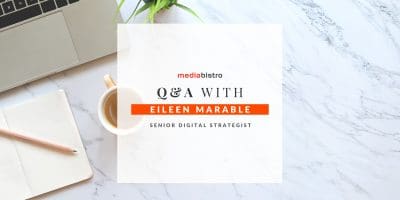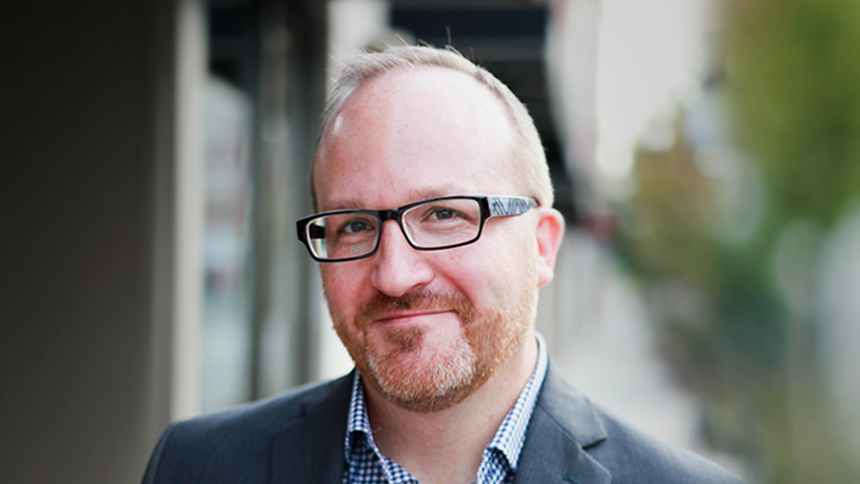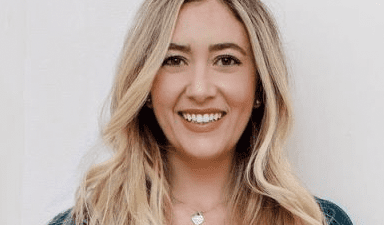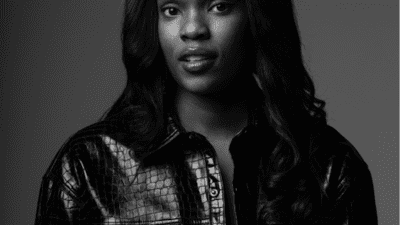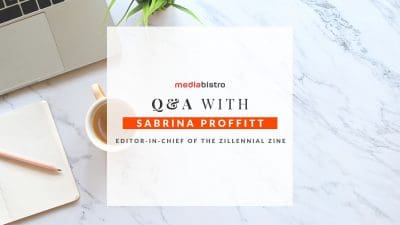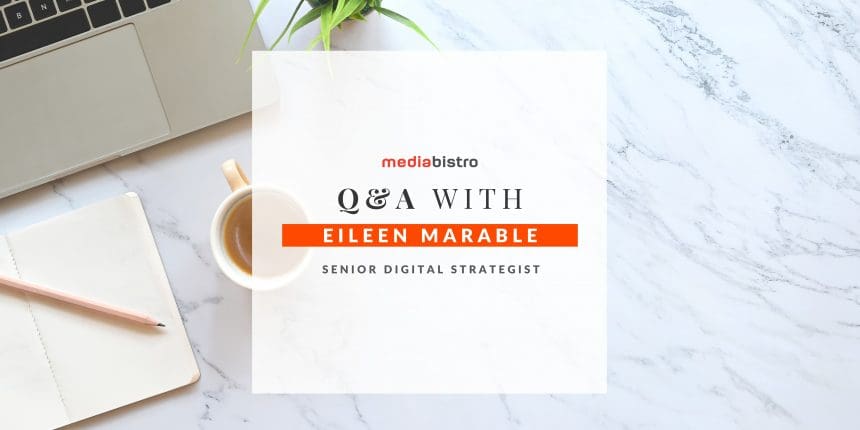
Senior Digital Strategist Eileen Marable shares her career path.
1. Tell me a little bit about your career journey. What different jobs have you had?
I’ve always been curious about everything asking, “why, how or what’s the connection?” since I was a little girl. And when you’re interested in so many topics it was overwhelming to pick one topic of study. I went as broad as possible and pursued an undergrad degree in International Arts and later a Masters in International Arts & Business, hoping I’d find the right path.
My first jobs were tracing lost international mail for the USPS which used my language skills and hinted at my ability to project manage and recognize patterns in data. I then assisted lobbyists at Consumers Union, part of Consumers Reports magazine.
I did everything from organizational duties to help field studies on redlining in banking and grocery stores and special projects related to product safety. I worked on my project management, learned a great deal about research, and how to write to convince an audience.
Throughout these early jobs I liked what I was learning but felt like I was missing a passion. I have said to mentees, who like myself, have may have felt like they were in the wrong job that it’s never a waste to find out what you don’t want to do. The trick is putting yourself out there until you do.
One day in the late 90s, I saw a job ad for a temp at a “major television company” located in Bethesda. Discovery Communications was the only company that fit the bill at the time.
Something stirred something in me. Television and movies had always been a passion for me – anything in the media and pop culture really. I used to sneak downstairs before doing homework to watch re-runs of Laverne & Shirley and probably watched every episode of Great Chefs on Discovery Channel while in college. Don’t get me started about primetime soaps.
I hadn’t studied for a career, creative or otherwise, in television or media because it wasn’t something that was suggested as a career path at my small, all-girl high school and it seemed so remote to me before I saw that temp opening.
I made it my mission to slay that interview and I was hired, beginning what would be a more than 20-year career at Discovery. I’m proof that keeping an open mind about what you do and don’t like until you recognize your goal can sometimes be a good strategy if you don’t feel like you’ve found what you’re looking for.
Discovery was the ideal place for me to thrive. It fed my curiosity in so many ways. I got to work on different topics of programming, such as Monster Garage, MythBusters, Mysteries of the Universe, cars, animals, wilderness shows, and so much more. I got to ask why and get an answer every day.
More importantly I got to learn the ins-and-outs of television production, digital media, and streaming from some of the very best in the business. I learned about quality control, what makes genuinely valuable content, and how to understand data.
I learned from “invisible mentors” about how to be a good colleague, the kind of leader I should be, and what loyalty means. These were some of the senior staff who guided our direction and who got in the trenches with us to make the most amazing things happen. Their work ethic and genuine enthusiasm inspired the best in me and in the colleagues I still call friends to this day.
If you raise your hand, you can do a lot of things in twenty years. During my time at Discovery, I was a Manager for PR and worked my way to Director of Program Marketing for Discovery Channel. When I made the change to digital my role was as Senior Producer of Digital and Social, and I served several networks over time.
As a Director of Marketing, I handled full marketing campaigns for large series, including traditional media, creating live touring events and OOH stunts. When moving to the digital media side as a Senior Producer of Digital and Social, the goal was very similar as it was in marketing. It was still about promoting shows and OTT content, just without some of the traditional tactics.
At the end of the day, everything boiled down to making unique, informative companion content for our programming to help promote our platforms or clients. We also made topical content to keep people coming to our platforms.
2. What does your day-to-day look like right now?
Mike Ring was one of my close friends while working at Discovery. I loved his creative genius on the projects we worked on there and on the projects he’s done since he left and founded his own agency, The Garden Creative.
The Garden is a boutique video production & creative agency, and I had consulted with them on digital strategy for one of their Fortune 500 clients in the banking category. The Garden was creating videos with stories about their employees and clients and their financial goals. My goal was to help optimize them in the digital space, prioritizing YouTube and organic search.
I joined the staff at The Garden and continue to create unique digital strategies for clients as well as drive marketing outreach for The Garden itself.
My day is spent doing research, optimizing inbound and outbound SEO, checking webpages and tags, watching and planning video, and writing. I absolutely love it.
I had wanted to work with Mike again for a long time and I’m glad I can be a part of his incredibly talented and passionate team. I’m getting to scratch my newfound itch for data. And, once again the topics and clients are varied enough to keep my busy brain happy!
3. The digital world is growing at such a rapid pace. What shifts have you seen within digital storytelling in the past few years?
When I first started in digital, one of the biggest things in content were web cams. People would sit for hours hoping to see something that might or might not happen.
Looking back on that kind of basic content and the fluid measurement in place during the early years of the digital publishing makes me cringe. Even then though, there were a few sites and mediums that knew the power of a good story would keep people coming back.
The ability of a story to move people or inform them so that they act is the key to storytelling that is never going to change. You can’t underestimate your audience. You must know what they want and show/tell them how you’re going to give it to them or entertain them.
What has shifted dramatically over my time in digital is the amount of data available. Measurement has become an art form that can be used to keep your loyal audiences engaged with content created just to serve them. Another run of data can give you precise information about what content will best attract potential audiences.
And then of course there is SEO, working with keywords and backlinks to help raise your content in search engine algorithms. I love the variety of data that can help you push just about any kind of content forward for sampling.
It used to be you’d create content and maybe rely more on a paid buy, link swaps, or some other kind of barter to help gain visibility for it. Now you are creating content and thinking of the clues you’ve been given to write it or the bread crumbs you can leave so more people than ever will find it.
I think today’s data and measurement capabilities have really changed how content creators approach their subject matter.
Plus, how we create content will expand as we are on the cusp of Web3. Already we are seeing content in the forms of NFTs, custom or branded avatars or rooms in the metaverse, AI programs and apps just to name a few. The near future will bring an explosion of new forms of storytelling, but it will always need to provide value or move people.
4. What inspires you within your career?
Hands down it has been people over the years that have and continue to inspire me. And teach me.
They are all the people who love their work so much they pass along knowledge of their craft as a matter of daily course. They are the people who are dedicated and serious about their work, but when a job is finished will play “Never Have I Ever” over Zoom to blow off steam. They are the people who are quiet geniuses, some who aren’t quiet, but all are unfailingly kind and helpful.
They are the people you want to work with at your next job.
5. What is your advice to anyone trying to break into this space?
If you’retrying to break into digital media or the media industry as a whole, I’d advise joining student or professional groups to learn as much as you can about the industry, what people are talking about the most, network, and hopefully find a mentor. If not a mentor, perhaps someone whose work you admire whose career you could follow.
As you move forward, I advocate for asking questions. Don’t be shy. It’s how you learn the best information. And, as much as you can and still keep a proper work/life balance, take on new challenges or create new things/processes at work. You’ll become invaluable and gain a seat at some very interesting tables. Pay it forward by mentoring others.
And remember, you are never at a place so secure that you can’t learn something new from those around you. Keep listening, keep learning, and keep making connections.
6. Anything else you’d like to add?
I love the quote from Bill & Ted’s Excellent Adventure: “Be excellent to each other!” It really is some pretty wise advice with some huge payoffs.
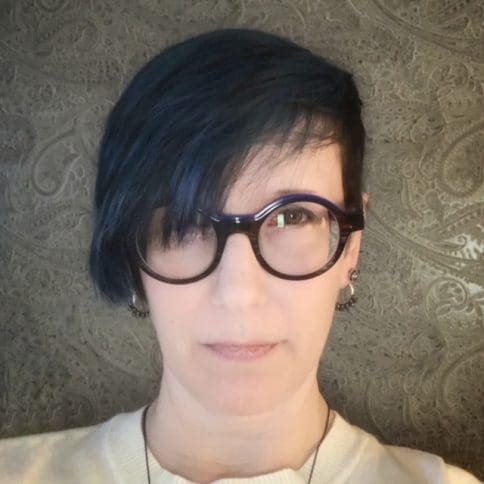
Interested in a creative gig? We have some open jobs for you!
